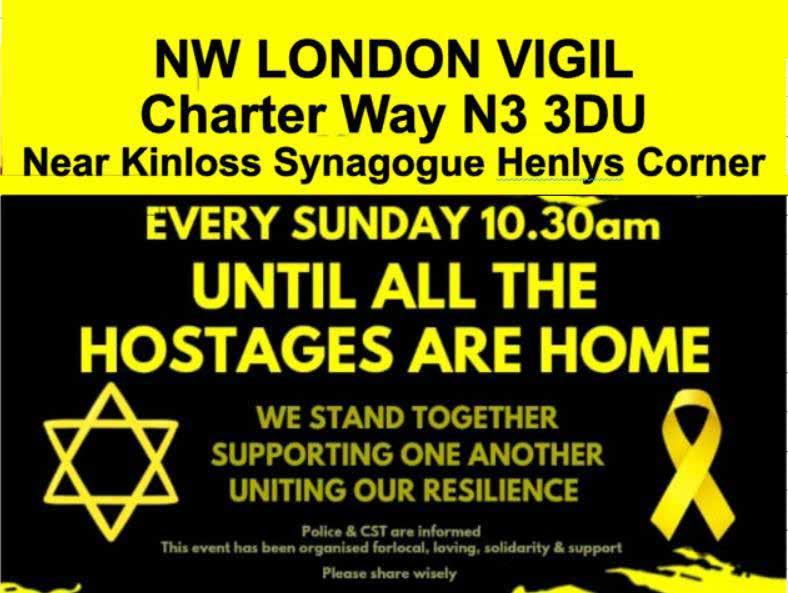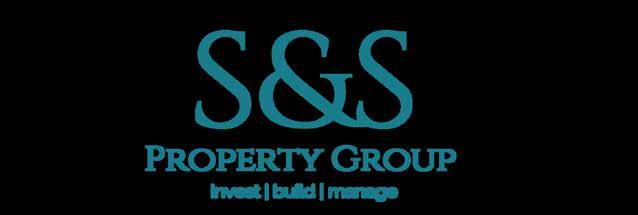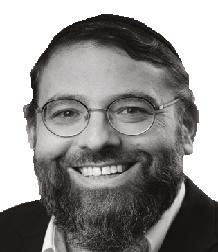


PARASHAT VA'ETCHANAN
SHABBAT: BEGINS ENDS
London 20:22 21:29
Manchester 20:36 21:48
Leeds 20:31 21:52
Liverpool 20:36 21:55
Birmingham 20:28 21:45
Antwerp 20:58 22:14
Bournemouth 20:22 21:36
Gateshead 20:36 21:59
Jerusalem 18:53 20:08








PARASHAT VA'ETCHANAN
SHABBAT: BEGINS ENDS
London 20:22 21:29
Manchester 20:36 21:48
Leeds 20:31 21:52
Liverpool 20:36 21:55
Birmingham 20:28 21:45
Antwerp 20:58 22:14
Bournemouth 20:22 21:36
Gateshead 20:36 21:59
Jerusalem 18:53 20:08




BY DAVID SAFFER
Prime Minister Benjamin Netanyahu is seeking a fullscale military occupation of the Gaza Strip.
With ceasefire negotiations stalling, and following horrific Hamas propaganda videos of emaciated hostages Rom Blaslavski and Evyatar David last weekend, according to Israel media, Netanyahu has discussed military challenges with senior ministers.

Defense Minister Israel Katz was yesterday reportedly quoted that the operation will be sanctioned.
The security cabinet are expected to meet today to evaluate targeting areas where hostages are believed to be held.
“The die has been cast,” a senior Israeli official told media outlets. “We’re going for the full conquest of the Gaza Strip and defeating Hamas.”
US President Donald Trump’s administration has advocated an approach to secure

the release of all hostage in a sole deal. And Trump has reportedly given Netanyahu approval.
Asked whether he would support an Israeli plan to reoccupy Gaza, Trump reportedly responded: “That’s pretty much going to be up to Israel.”
But Chief of Staff Lt. Gen. Eyal Zamir advocates cutting IDF numbers. Other military leaders have reportedly backed Zamir according to reports.
Kan Radio reported that Zamir told Netanyahu the “complete conquest” of the
Gaza Strip was “tantamount to walking into a trap” that would endanger the lives of hostages and troops. But an Israeli official reportedly said: “If that doesn’t work for the chief of staff, he should resign.”
Israeli forces control around 75% of Gaza but an enhanced operation could result in an escalation of terror attacks. Israel’s military has warned a fullscale invasion is challenging with few safe places for a humanitarian zone.
The Hostages and Missing Families Forum opposes reoccupying Gaza as it endangers the lives of hostages still alive. Former hostages have warned Hamas have threatened to kill captives that are alive if Israeli forces approach their locations.

Despite warnings, Netanyahu’s backers include far-right ministers Itamar Ben-Gvir and Bezalel Smotrich.
Israel, meantime, has insisted there is no starvation policy in Gaza.




Who else wants to save money on their health insurance?








LOOKING FOR SOMETHING SPECIFIC? WANT TO BUY AS A GROUP? NOT SURE WHERE TO START?
Meet Israeli real estate expert Debbie Goldfischer in person for a FREE private consultation
AUG 13-19 | London
Limited Spots Available Book Now


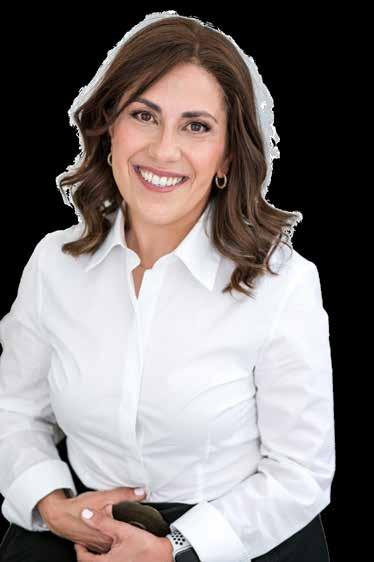
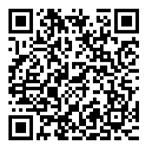

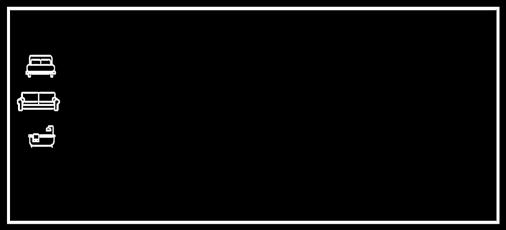














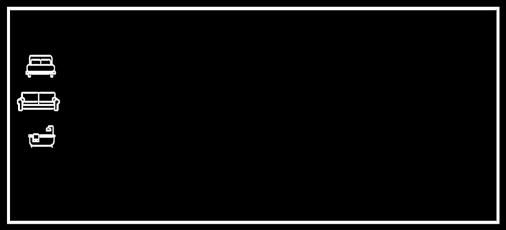








BY DAVID SAFFER
World leaders and holocaust survivors reacted with horror to propaganda videos by Hamas of emaciated hostages last weekend.
A video of Evyatar David saying he had not eaten for days and digging his own grave followed footage from Islamic Jihad of Rom Braslavsky begging for his life. Both hostages were kidnapped from the Nova music festival.
Ilay David addressed The United Nations Security Council, telling them his brother and other hostages had “days left to live” on Tuesday night.
Hamas forced Evyatar to watch fellow hostages released which was the “height of evil”, said Ilay, the video was a chilling reminder of Hamas’ cruelty. “My brother looked like a skeleton,” he said. “He could barely move or speak. We didn’t even recognise his voice.”
Ilay and his mother have not watched the video as they “wouldn’t be able to

function”, his father and sister have and are haunted by the images,
“The only one’s starving are my brother and the 49 other hostages,” Ilay said, adding that the terrorists are using hunger as a “weapon of war”.
“This is a humanitarian crisis, yet no one here, or in other UN bodies, is talking about it,” he said.
Noting world’s leaders, council members and the international community bore responsibility, he concluded: “Your silence is the face of this monstrous cruelty.”
Foreign Minister Gideon Sa’ar initiated the discussion calling for the immediate and unconditional release of all hostages.
“Hamas and Islamic Jihad are using starvation as part of their propaganda campaign,” he said. “Israel is sending massive aid to Gaza… Some states are operating within this framework, pressuring Israel instead of Hamas during critical days of negotiations. A Palestinian state? They’re handing Hamas free gifts and directly undermining the negotiation efforts. Hamas is responsible for starting the war and for continuing it. International pressure must be placed on Hamas. Anything else will only prolong the war.”
The videos followed US special envoy Steve Witkoff visiting Gaza last Friday to view the aid delivery mechanism before meeting hostage families. Witkoff told families Prime Minister Benjamin

Netanyahu and President Donald Trump were working on a deal to release of hostages and disarm Hamas.
On the ‘day after’ in Gaza, a US-led international administration would be established in the Strip. If Hamas do not agree the US is expected to give Israel approval to operate across the Strip.
Netanyahu spoke with both families and addressed Israelis.
Comparing the hostages and captors, he noted: “The monsters of Hamas who surround them have thick, fleshy arms. They are starving them the way the Nazis starved the Jews.”
Netanyahu said Hamas was violating international humanitarian law and using propaganda videos to psychologically break Israel.
“We will not break,” he vowed. “I am filled with an even stronger determination to free our captive sons, eliminate Hamas and ensure Gaza will no longer pose a threat to the State of Israel.”
President Isaac Herzog added: “Hamas doesn’t just starve the hostages, it starves the people of Gaza, by looting aid and blocking humanitarian deliveries which Israel has worked with its international partners to increase. Hamas spreads lies and libels, blaming Israel to exploit global compassion. Hamas rejoices as it succeeds in distracting the world from their own crimes against humanity. This is pure cruelty.”
Holocaust survivors spoke at a
solidarity event in Hostage Square in Tel Aviv on Tuesday evening.
Naftali Furst, 94, who survived four concentration camps including Auschwitz, said: “Without hope, we would not have survived. I hope your children are freed and that the government gains some wisdom, heart and Jewish values and that the hostages are released.”
Auschwitz survivor Aryeh Pinsker said: “I never thought we could reach such neglect. I hope this ends differently and ends well, that we become a united people again, with sane leadership.”
French President Emmanuel Macron and Prime Minister Keir Starmer, who both said they will recognise a Palestine state by the United Nations General Assembly in September, described the videos as “unbearable” and “abhorrent” respectively.
German Chancellor Friedrich Merz said Hamas should have “no role in Gaza’s future”.
The European Jewish Congress called on international and European leaders to stop “victim blaming” Israel and secure the release of the hostages.
“How do world leaders square the prizes they are offering for Hamas barbarity in the form of promises of recognition of a Palestinian state next month with the emaciated pictures of Israeli hostages,” noted EJC President Dr. Moshe Kantor.

Spend your retirement doing what you love - not worrying about money


BY DAVID SAFFER
Prime Minister Benjamin Netanyahu appealed to the Red Cross International Committee to intervene following horrific footage of emaciated Israeli hostages Evyatar David and Rom Braslavsky in Gaza.
Netanyahu demanded from Julien Larison, head of the Red Cross delegation in the region, urgent delivery of food and medical aid to the hostages.
“I told him clearly, the lie of starvation by Hamas is being spread around the world, but the reality is that systematic starvation is being carried out against our hostages,” he said. “The world cannot remain indifferent in the face of the shocking images that recall the crimes of the Nazis.”
Netanyahu called on world leaders to condemn Hamas and Islamic Jihad. Direct or indirect support for the terror organisations must end, he noted.
“The actions of these terror organisations violate international law and Geneva Convention,” he stated.
President Isaac Herzog spoke with Mirjana Spoljaric, President of the International Committee of the Red Cross in Geneva on Monday and also called for immediate action.
“The hostages’ health condition is dire, the evidence suggests a real and immediate threat to their lives,” he noted. “The
shocking footage of their bones visibly protruding from their skin as a result of deliberate starvation reveals the extent of their suffering, abuse and neglect they are enduring. It underscores the urgent need to provide them with food and immediate medical care.”
Herzog called on the international community not to communicate with Hamas until all hostages held in captivity are released during diplomatic talks with Baltic states this week. Herzog told Lithuanian
welcome humanitarian airdrops and call on all nations to improve conditions on the ground but we must speak the truth. The Hamas campaign of false accusations, while it itself bears direct responsibility for the suffering of Gaza’s civilians, is a blatant lie and a distortion of reality.”

President Gitanas Nauseda in Vilnius that Israel has been fighting to bring its hostages home and to restore security for its citizens for nearly two years.
Noting 23,000 tons of humanitarian aid had entered Gaza this week, he explained: “Hundreds of trucks are waiting to be distributed but the United Nations has failed to do so efficiently. We
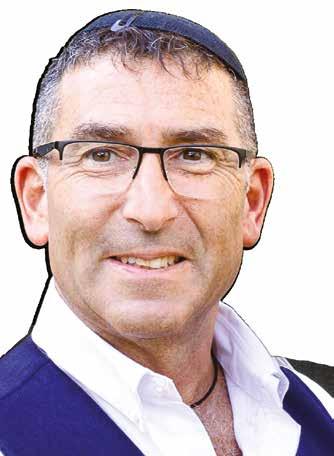
Regarding footage of David, of Lithuanian heritage, and Braslavski, Herzog said they were in life-threatening danger.
“We must not remain silent, they must all be brought home,” he noted. “That is the key
to resolving the crisis in Gaza and wider Middle East. These hostages are the victims of horrific crimes against humanity. These horrendous images are another chilling reminder while Israel delivers humanitarian aid into Gaza, innocent Israelis are held underground tortured and stripped of all rights. This must shake the conscience of the entire world.”
Following a bilateral meeting with Latvian President Rinkevics in Riga, Herzog said he had advocated for peace agreements in the region but October 7 was a “wake-up call” for Israelis.
“The Palestinian people are torn between two entities, he said. “One is controlled by the Palestinian Authority and one by Hamas. If you ask an average Israeli whether they believe it’s feasible to get to a two-state solution, the answer will be no.” He added: “This was a peaceful border shattered by a brutal terrorist organisation. To finish the tragedy in Gaza imposed by Hamas, one has to get the hostages back home.”
Herzog displayed images of David and Braslavski. “They’ve been starved purposely, while their captors are eating and having wonderful meals,” he noted. “If you get the hostages out, you will have the ability to move to a ceasefire.”
Noting 23,000 tons humanitarian aid had been delivered with 120 airdrops by countries around the world, he added: “There’s been a major overhaul of the supply of water and electricity, this while our hostages are starved.”
Herzog called on the international community for a unanimous position on Hamas and its allies that “we’re not talking to you until you release the hostages”.


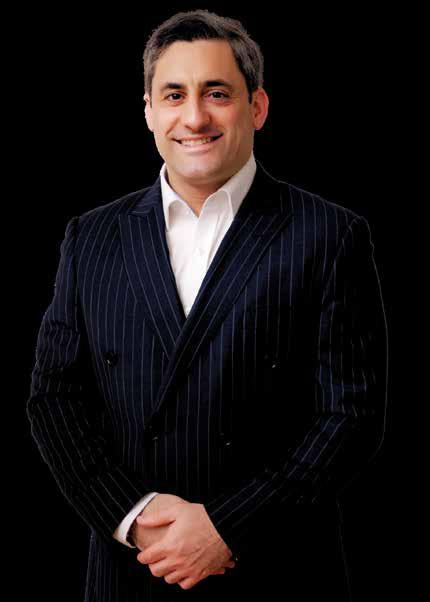
The Community Security Trust recorded 1,521 antisemitic incidents in the UK from January to June 2025.
This is the second-highest total of anti-Jewish hate incidents recorded by CST in the first half of any year. Last year saw 2,019 antisemitic incidents following the Hamas terror attack on Israel.
A prominence of the war in media coverage, political rhetoric and public discourse saw 779 incidents linked to Israel, Gaza, the Hamas terror attack and ongoing conflict.
Over six months 76% of incidents showed evidence of political or ideological discourses or motivations whether anti-Zionist, far right, Islamist or other alongside anti-Jewish language, motivation or targeting.
Every month saw at least 200 incidents, as has every month bar one since the 7 October attack.
Before the Hamas atrocity, CST recorded over 200 monthly incidents on five occasions, all when Israel was at war.
The highest monthly total was in June with 326 incidents, coinciding with an escalation in Gaza and war between Israel and Iran. The highest daily total was 26 incidents on 29 June, the day after punkrap group, Bob Vylan, led mass chanting of “Death, Death to the IDF” at the Glastonbury Festival, broadcast by the BBC. The second worst day saw 19 incidents,
11 involved antisemitic placards at an anti-Israel demonstration in London, the day after Israel announced an expansion of its military Gaza operation. In these incidents anti-Jewish language, motivation or targeting was evident alongside rhetoric linked to Israel and the wider conflict.
Both cases illustrate how sentiment and rhetoric towards Israel drives contemporary anti-Jewish hate, online and offline, often around antisemitic events that grab mainstream public attention.
incidents of Abusive Behaviour (verbal and written abuse, online and offline).
Overall, there were 372 online incidents reported, 38% of the total, a fall of 12% from last year.
CST recorded 774 antisemitic incidents in Greater London, a decrease of 26% in 2024, and 194 in Greater Manchester, a decrease of 28%.
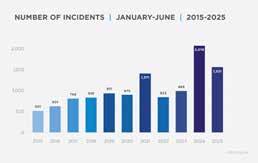
The number of incidents involving Holocaust-related language and imagery fell by 7% to 477, compared to 513 in the first half of 2024. Incidents celebrating the Holocaust increased from 61 to 107. Holocaust denial incidents occurred 26 times.
CST recorded 76 violent anti-Jewish assaults, three were ‘Extreme Violence’. There were 84 cases of Damage & Desecration of Jewish Property; 96 incidents of Direct Threats; 21 incidents of mass-produced antisemitic Literature and 1,236
For over 120 years JNF UK has worked tirelessly to develop the Land of Israel.
Much of our work has only been possible thanks to the generosity of our legacy donors like Eric, who regarded the work of JNF UK as vital to realising the Zionist dream.
Leaving a gift in your Will, no matter how small or large, is one of the most valuable ways you can forge an everlasting bond with Israel.
Our professional and caring Legacy Team offer a range of professional services and first-rate pastoral care. To find out more, please get in touch:
Elsewhere in the UK, antisemitic incident figures were West Yorkshire 73 incidents, Hertfordshire 52 incidents, West Midlands 39 incidents, Scotland 36 incidents and Sussex 32 incidents.
CST did not record an incident in Suffolk.
CST Chief Executive Mark Gardner said: “These are extreme levels of Jew-hatred, committed in the name of anti-Israel activism. It involves racial hatred, yelled at Jewish schoolchildren, scrawled on synagogue walls and thrown at anyone who is Jewish or suspected of being Jewish.”
Home Secretary Yvette Cooper observed: “Antisemitic incidents and crimes remain shamefully and persistently high. This Government remains steadfast in
its commitment to root out the poison of antisemitism wherever it is found.”
Shadow Home Secretary Chris Philp noted: “It is extremely sad to see that antisemitism is still at record highs. Antisemitism has no place in our society.” Noting the Glastonbury Festival, Philp added: “Vylan was inciting violence and hatred, it is right that the police are investigating his performance.”
Lord Mann, the Government’s Independent Adviser on Antisemitism, commented: “Antisemitism continues to impact the British Jewish community at an unprecedented level. Antisemitism must be recognised by everyone as anti-Jewish racism, there must be a no tolerance approach across civil society at all levels.”
Antisemitic incidents are reported to CST by members of the public, security guards at Jewish locations, CST volunteers, via information sharing with police and other sources.
1,081 potential incidents were reported to CST but not deemed antisemitic due to insufficient evidence of anti-Jewish language, motivation or targeting. Although not explicitly antisemitic, they contribute to a heightened sense of anxiety in Jewish communities. Many required follow-ups with victims, police and other agencies, while having implications for communal security and policing.
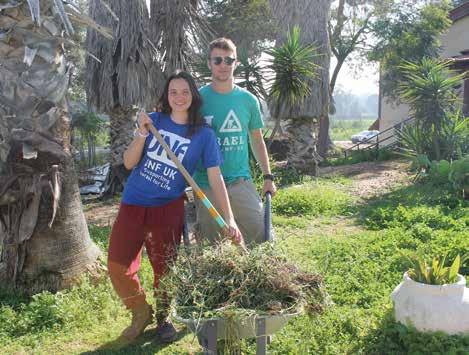







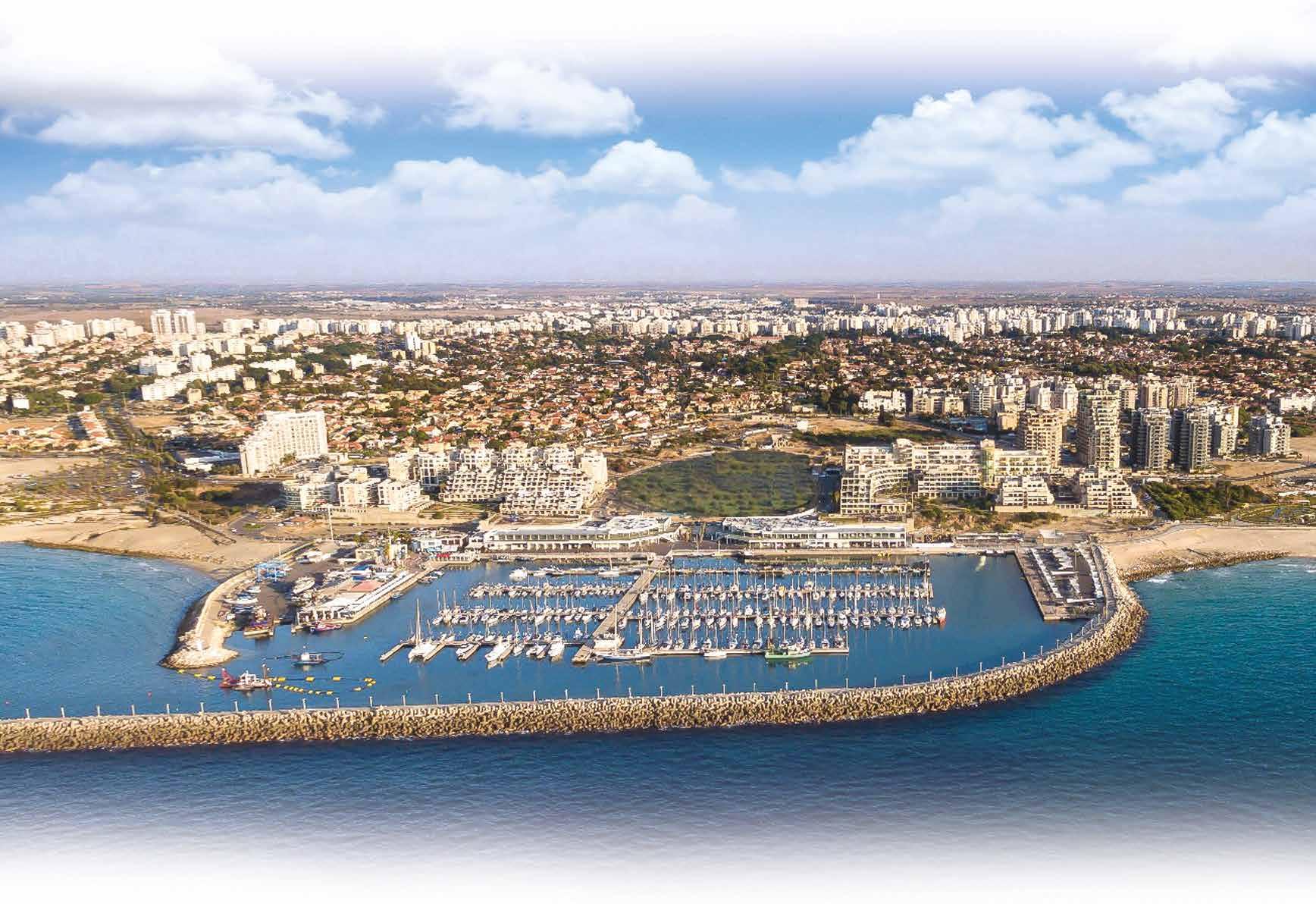





BY GARY MOND
Many congratulations to the Jewish Weekly newspaper on its excellent editorial “Our Community Deserves Better”. It is great that a major UK Jewish newspaper with a very high level of circulation is taking the lead on the thorny issue of the discontinuation of the Board of Deputies (“the Board”). This, in recent years, has gone from being an approach advocated by a small fringe to a mainstream Jewish viewpoint.
The burning question that shulgoers who send a levy to the Board, and the shuls themselves who pay for the dubious privilege of sending Deputies to meetings, which by all accounts are a complete waste of time, have to ask themselves is whether they are getting value for money, or whether their charitable donations could be better spent on the many highly worthwhile but cashstrapped Jewish charities. Alternatively, to the extent that they want to make donations to active lobbying and educational groups that are not politically woke and achieve results, they should perhaps donate to Campaign Against Antisemitism, UK Lawyers for Israel or Stand With Us UK.
The editorial focuses on recent events at the Board and its abject lack of real support for Israel in recent months. However, the problems at the Board go back well over ten years. I joined the Board as a representative of the Jewish National Fund in 2011, and served in that capacity until 2022, when I resigned (but was effectively removed owing to my political views) as senior vice president, having topped the poll eight months earlier, and also left the Board completely.
The first time I had serious cause for concern regarding the Board’s behaviour was in 2013, when a resolution was passed supporting an honorary officer decision to work with Oxfam, a charity not known for its support for Israel, to put it mildly. The matter went to a vote of Deputies and was passed roughly 65% to 35%. The following year, during the Gaza war at that time, a Deputy from Leeds, speaking about the war deaths, said he had no sympathy whatsoever for Gazan deaths but every sympathy for Israeli ones. This led to that Deputy being stopped from speaking, expelled from the meeting and a few days later being removed from the Board. Why? Because the then president believed that those comments went against “Jewish values”. One can agree with those views or not, but they do not justify expulsion. I bitterly regret having remained silent at that time.
Also in 2014, Yachad were admitted to the Board and anti-Israel attitudes among Deputies began to accelerate. Of course, Deputies would not say they were anti-Israel – merely that they were anti the Israeli government. I think that the first direct attack on Israel from the Board’s honorary officer team came in 2018, when the then head of the international division criticised the Israeli government over its “Nation State” law. This last point demonstrated a “Board knows best” attitude to Israel. I think this is wholly wrong and brings diaspora groups into disrepute. It is for the Israelis, and them alone, to determine their own government and they, and they alone, can criticise it. Even the 20% of Israelis who are Arab citizens have infinitely more right to give their views than overseas Jewish groups such as the Board of Deputies.
This trend continued in 2020 when a resolution, proposed incidentally by two individuals who are currently honorary officers of the Board, to support the creation of a Palestinian state alongside Israel was passed. Then in 2021 a cack-handed attempt was made to change the constitution in a way which would reduce the rights of Deputies. In spite of support from the officers at the Board, and a respected previous president, as well as (at the first attempt) trying to pass the resolution without Deputies being allowed to speak, it failed.

Yet perhaps the most disgraceful incident bringing the Board into disrepute happened about a month after I resigned in 2022. A member of the Knesset, Bezalel Smotrich, who today is Israel’s finance minister, visited the UK. When the Board found out about his presence in this country, it publicly condemned him and demanded that he leave the UK immediately. This attack on an elected Member of the Knesset was nothing short of an abomination, whatever one might think of Mr Smotrich’s views. Indeed, the Board was condemned by Israel’s President Herzog. That incident showed the disgusting political intolerance of the Board. It was an insult not just to the 15% or so of Israelis who voted for his party, nor to the almost 50% who voted for his party or other right wing Israeli parties who were happy to work with him. It was an insult to the entire state of Israel, no less.
Then we had the unbelievable incident, in 2023, of then Board President, accompanied by at least one member of Board staff, visiting Calais to show sympathy with immigrants who wished to travel to the UK, probably illegally. Was this what the Board was set up to do?
In summary, the Board’s approach to the state of Israel renders it, in my view, an unsuitable vehicle for the support
of Zionism. Perhaps it can, however, be seen as representative of those who wish to change the state of Israel to a far left entity which will surrender to its enemies. Nor is it a place for those British Jews who lean politically to the right. I advise all synagogues to remove their funding from the Board. This will not bring the Board to an end, as it has healthy finances owing to the sale many years ago of a central London property, but at least the Board’s legitimacy can and should be taken away. Finally, one additional point about the letter from the 36 rebellious Deputies who attacked the Israeli government which the Jewish Weekly editorial covered. On this, the Board’s leaders have had great success in pulling the wool over the eyes of the Jewish community, including the United Synagogue. They ensured that, after the Financial Times letter in April was published, all attention focussed on criticism of the 36 Deputies for allegedly misrepresenting the Board’s position. This tactic diverted attention from what the Jewish community, and the wider British population beyond it, really wanted to know. Only two questions mattered to those outside the Board. First, is this highly negative view of the Israeli government’s actions the view of the Jewish community as a whole?
Second, what is the actual view of the Board’s Deputies?.
Regarding the first question, I firmly believe but cannot prove that the answer is no. However, on the second question, of some 270 voting Deputies, I would contend that if the content of this letter were actually put to a vote, as opposed to the actual fact of getting the letter published, it would be supported by some 70% of Deputies – certainly most from the progressive synagogues and the “fringe” groups who have representation on the Board (e.g. Yachad), but also a considerable number of Deputies from United Synagogue shuls would have supported it. Indeed, the position set out in the letter is almost identical to the views of the Jewish Labour Movement (“JLM”), and no fewer than four of the five Honorary Officers of the Board are or have been JLM activists. The leadership of the Board would have known this and could not possibly allow such a resolution to be debated with a vote. Otherwise United Synagogue support for the Board would have collapsed. That is the Board’s dirty little secret.
By Gary Mond, former Senior Vice President of the Board of Deputies.

Galilee | Sukkot 2025 | October 6-18

Celebrate Sukkot in sublime luxury at the David’s Harp Hotel, Israel’s newest jewel. Perched above the Sea of Galilee, this stunning hotel, shaped like a harp, unveils sweeping, panoramic views of the Sea, the Golan Heights, and the enchanting Galilee hills. Discover a unique blend of architectural wonder and Biblical inspiration, where every glance evokes a sense of timeless beauty. Limited rooms available. Book early to avoid disappointment.

LUXURY FACILITIES
FINEST DINING
PAMPERING SPA
ON-SITE MASHGIACH KIDS CLUB


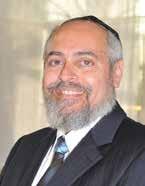

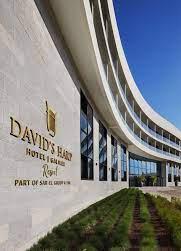

BY ROBERT FESTENSTEIN
Last week was an interesting week for me, since I saw in this paper, a detailed and hard-hitting attack on the Board of Deputies. The thrust of the criticism was based upon the Board’s decision to hold an emergency meeting about Gaza and food distribution, yet had failed to hold any other such meetings in relation to anything else concerning the war.
The most obvious time for this would have been when it was revealed in February of this year that hostages Shiri Bibas, her two sons, baby Kfir aged 9 months and Ariel who was 4 years old were murdered. We were aware that it is

very likely that the two infant boys were brutally murdered sometime in November 2023 by terrorists with their bare hands, and subsequently in an attempt to disguise the strangulation the bodies were struck with blocks of masonry. No emergency meeting of the Board was called, no motion condemning Hamas and no decision to hold a rally in support. Nothing.
I thought about last week’s editorial and whilst this pointed to many deficiencies of the Board there were two omissions which bear exploring.
The first is the policy towards Jewish students. I have never understood why our leaders have seen fit to rely on the students themselves and the small number of permanent employees of the Union of Jewish Students – UJS - to stand opposed to the Jew hate in our universities. Even before the 7th October the choice of universities for Jewish students was influenced by the level of anti-Semitism at particular institutions. For some now, the idea of going on to higher education is just too much. In 2025 Jews are now choosing not to go to university because of anti-Semitism and very little is being done.
This has been on the cards for years. SOAS, Bristol, Israel apartheid week are all words and phrases synonymous
• Tax-efficient investing before and after Aliyah
• Tax-efficient income after 10-year tax-free period
• Receive your entire pension pot tax-free
• Specialist portfolio management for Olim
• No Inheritance Tax (for non-UK-situated assets)
We are seasoned experts in providing long-term financial planning advice for those making Aliyah. Scan the QR code to read more
With investing, your capital is at risk. Tax treatments are subject to individual circumstances and are subject to change.
with hostility towards Jewish students and academics. Before October 7 It became accepted that there were no-go universities for Jews. Since October 7 the position has become appalling. I am certain that some universities are a lost cause. There are many others which used to be safe but have now become unpalatable as an option. The students are at the sharp end of an intimidatory culture which has spread amongst university staff, both administrators and academics. No survey is needed. No investigation is required. The incidents of anti-Semitism are too numerous to catalogue yet for reasons passing understanding the Board still believe that the students should be left to their own devices in fighting this massive increase of hate. It makes absolutely no sense whatsoever. The Board through this daft policy, fails to recognise the current dire situation and makes no attempt even after October 7 to change. UJS do a fantastic job with the meagre resources they have. Even with the well-deserved win of a grant of £1m, UJS should not be fighting university hatred alone. What is needed is a substantial campaign to raise millions of pounds to pay for experienced and trained people to attach to all the universities in the country and hold the vice-chancellors to account both in respect of students and employees, including lecturers. I am sure
that once the court actions start, and that is what is needed, the vice-chancellors will be forced to take action, other than sitting on their hands and whinging about freedom of speech. Since this is beyond the Board’s capability, we need to look to another organisation to pick up this particular mantle.
I said two omissions. The second is the BBC. Now, this issue is in my view much more straightforward. Demos. That’s what is needed. Demonstrations outside BBC buildings, with leaflets condemning the BBC as anti-Semitic. It is as simple as that. Perhaps have some banners which BBC employees can read as they enter their building, saying ‘have a good Jew-hating day’ or words to that effect. As far as I can tell all the Board have done is write a couple of stern letters asking for explanations in relation to some disgusting dishonest report or other. I am sure the Board have had lots of internal meetings about the BBC and even had face to face conversations with senior people there. I am also sure that the BBC will have taken no notice of the Board at all. Well, why should they? The Board represents no threat.
So kol hakavod to this paper for telling us how it is. The time is up for the Board and its supine attitudes. The search for a proper entity to represent us needs to start now.

Mizrachi UK has won three mandates in the UK elections to the World Zionist Congress.
Right wing and orthodox slates secured 11 of the UK’s 19 seats in results announced last week.
According to reports however there were allegations of voter fraud involving Eretz HaKodesh.
For the first time in many years, the UK held open elections to the Congress with a tremendous turnout of 10,651 voters. The figure far exceeded previous contests.
To ensure diversity in representation, the AEC instituted a cap of five mandates per slate.
The Zionist Supreme Court issued a ruling that altered the method for redistributing surplus votes among slates that surpassed the 1/19 election threshold.
The UK AEC confirmed the allocation of mandates was carried out in compliance with the Supreme Court ruling and pre-established election rules.
The final mandate allocation is Eretz HaKodesh: 5 mandates; Our Israel: 5
mandates; Shas Olami UK: 3 mandates; Jewish Labour - Meretz: 3 mandates and Orthodox Israel Coalition; (Mizrachi UK: 3 mandates. Other slates: 0 mandates
The raw vote totals for each slate were Eretz HaKodesh: 4,529; Our Israel - the joint list of Liberal, Masorti and Reform Judaism: 2,088; Shas Olami UK: 1,153; Jewish Labour - Meretz: 1,062; Orthodox Israel Coalition; Mizrachi UK: 1,005; Jabotinsky’s Israel - Stand With IDF: 370; Kol Israel: 325; Israel Solidarity Campaign UK: 66 and Hanoar Hatzioni: 53.
For the first time, the Area Election Committee in the UK is going to have an Orthodox majority after recieving 65% of the votes.



Last month’s article focused on the grounds on which a will can be struck down on the ground of invalidity.
But there’s another ground for challenge, which does not deny or seek to challenge the validity of the document. Instead, it is based on the premise that the will does not make ‘reasonable financial provision’ for the claimant.
In civil law countries, whose legal system is based on Roman law, there are often forced heirship rules under which certain categories of relatives are entitled to a fixed share of the estate of a deceased person. In France, for example, the law ensures that a portion of the estate is reserved for certain designated heirs, primarily children or the surviving spouse. The exact portion reserved depends on the number of children; a parent with two children is able to leave just one-third of their estate as they choose (including to their spouse), the remaining two-thirds is ‘reserved’ for the children. Even Scotland has a similar system.
In England, however, the broad proposition is that everyone is free to include and exclude whoever they wish; this is known as freedom of testamentary disposition.
But there are exceptions to this general
proposition. A statute known as the Inheritance (Provision for Family and Dependants) Act 1975 gives certain categories of individual the right to challenge the distribution of the deceased’s estate under their will. A challenge can only be brought by certain individuals:
1. A spouse or former spouse, or someone living with the deceased as if they were married (or in a civil partnership).
2. A child of the deceased – this can include adult children as well as minors, and anyone treated as a child of the deceased (e.g. a stepchild).
3. Anyone who was financially dependent on the deceased prior to his/ her death.
In deciding whether reasonable financial provision has been made, a court will take into account all the circumstances (e.g. the size of the estate, the distribution under the will, the financial resources and needs of all beneficiaries and the claimant(s), the conduct of the claimant(s), etc). A spouse is entitled on death to a capital award and not merely income
for their maintenance, and it is now settled law that a spouse is entitled to no less than they would have received if the marriage had ended by divorce rather than death, with a starting point of a 50% share. In the case of children (or someone financially dependent) their entitlement is for maintenance (i.e. income) only, not capital, and case law has established that adult children of independent financial means will struggle to succeed in their claim.
These sorts of disputes are becoming increasingly common. Even though litigation is eye-wateringly expensive, emotions run high, and claimants often fight a court case as an issue of principle. Even for those who allow their head to rule their heart, the size of the estate makes litigation (or the threat of it) enough to bring the warring parties to the negotiating table.
To get the best value from your private medical insurance, you should speak to an expert who is qualified to advise you on the right policy for you, and recommend the providers who offer the most competitive premiums.
This advice covers individual, family and company policies, and is always FREE.
As an independent health insurance expert, I work with the healthcare insurers to provide you with the appropriate and most affordable level of cover. So whether you have an existing policy or not, let’s have a chat.
You can contact me at 020 3146 3444 or 07956

For more information contact Harvey Bratt, solicitor and UJIA Director of Planned Giving on 020 7424 6431 or harvey.bratt@ujia.org


The Odessa Jewish Community strongly condemns Monday’s drone attack by Russian forces on the city of Odessa,
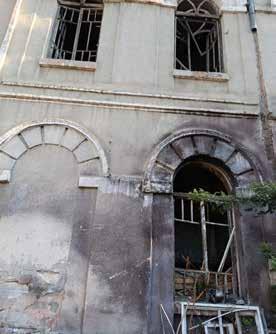
during which the historic Old Peresip Synagogue sustained significant damage and caught fire.
Rabbi Shlomo Baksht, Chief Rabbi of Odessa, expressed his deep sorrow, stating:
“A day after we mourn the destruction
of the Temple in Jerusalem, we now mourn a new and painful loss—the severe damage to the Peresip Synagogue in Odessa. Though it has not been in active use in recent years, it stood for generations as a house of prayer, memory, and holiness, housing ancient scrolls and sacred books. Its destruction is a wound to our community and our heritage.”
Refael Kruskal, Vice President of the Odessa Jewish Community and CEO of Tikva, who led the evacuation of hundreds of Jewish children to Romania at the onset of the war, issued a powerful condemnation:
“When a house of worship is attacked, I expect the world to condemn this act of brutality. Senseless and aimless violence that targets religious sites and civilians crosses a moral red line—one that has been violated too many times. This must stop. Our communities, our children, and our sacred institutions deserve protection, not destruction.”
The Odessa Jewish Community calls upon international leaders and human rights organizations to speak out clearly and urgently against these repeated acts of aggression. The deliberate targeting of civilian and religious infrastructure must not be tolerated.

MONDAY 1ST SEPTEMBER
BEGINNERS’ COURSE
MONDAY 8TH SEPTEMBER
ADVANCED COURSE
THURSDAY 4TH SEPTEMBER

Tessa Arnold joined Jewish Care’s Board of Trustees in July. Tessa was a Trustee of Jami for five years until 2024 when she joined the Jewish Care Mental Health Committee and has sat on the Jewish Care Human Resources Sub-Committee and the Remuneration Committee since 2022.
As an executive coach, Tessa works with CEOs, senior leaders and professionals in organisations and charities across several sectors and communities, partnering with her clients to address complex challenges and goals.
Her corporate career has included international human resources roles in the energy, technology consulting and software solutions sectors. She spent 15 years at British Petroleum plc, her last role as Director of BP’s Global Talent & Learning Academy, focusing on leadership development, talent management and learning to support organisation change, business growth and digital transformation. Her passion is building diverse, engaged and effective leaders and teams.
Tessa has a bachelor’s degree in economics from the London School of Economics and Political Science, a post-graduate diploma in human resources management and is a Fellow of the Chartered Institute of Personnel & Development. She holds the Professional Certificate in Executive Coaching from Henley Business School and is an International Coaching Federation Associate Certified Coach.
Tessa says, “I am delighted to join Jewish Care’s Board of Trustees and to have the opportunity to give back to
the Jewish community. My professional career has enabled me to gain skills and experiences that I hope will help the charity to achieve its ambitions to ensure that we are fit for the future and can meet the increasing demand for all of our services.”
Jewish Care’s Chair of Trustees, Marcus Sperber, says, “We are delighted to welcome Tessa Arnold to the Board. As an employer of over 1300 people, we are fortunate to benefit from Tessa’s wide-ranging professional skills and experience as well as her knowledge of social care services in the Jewish community. Tessa brings a depth of expertise in people leadership and recognises the importance of continuing to deliver critical support to those in need. We look forward to her supporting the Board and our executive team as we face the future together.”

Jewish Action for Mental Health (JAMH) has wrapped up a hugely successful run of youth events this summer, with over 20 boys from Years 9 and 10 at Mesivta School taking part in two unforgettable days of sport, social connection, and personal development.
The JAMH & CLC 2-Day Epic Summer Event, held at The Shrubberies Shul and local venues, combined Shacharit, shiurim, wellbeing workshops, and high-energy activities, creating a powerful blend of meaning and fun. Sessions were led by local sixth formers, Rabbis, and JAMH facilitators, giving participants the chance to reflect on emotional resilience, friendship, and self-awareness – all while building strong bonds in a relaxed, engaging environment.
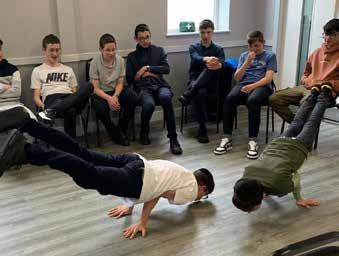
appreciated.”
Reflecting on the impact of the summer programming, JAMH Trustee responsible for youth work, Jonny Wineberg, said:
Highlights included competitive football at Goals, classic comfort food like hot pizza, chips, and veggie hotdogs, and an afternoon of ten-pin bowling, bringing out the laughs, cheers and camaraderie in full force. A separate girls’ tennis event also ran during the summer, offering young women a chance to enjoy friendly competition and connect in a supportive space.
Parents were quick to share their appreciation, with one commenting, “My son absolutely loved it last week. Thank you!” Another wrote, “Thanks for arranging such an engaging and enjoyable programme for the boys. It’s really
The 20th Finchley Scout Group has returned from an unforgettable four day nature summer camp, packed with adventure, challenges and skill building. The group set up their own tents, prepared meals under supervision and embraced the outdoors in its purest form. Set against the stunning backdrop of nature, the camp offered young people the chance to take part in a wide range of activities designed to promote resilience, confidence, teamwork and personal growth. Campers had the opportunity to experience:
Paddle boarding and kayaking on open water, rock climbing and crate stacking,
testing their physical limits.
The trip also included, a memorable trip to Brownsea Island, the birthplace of the global Scout movement, an adventurous island walk and geocaching challenges, Tomahawk throwing, under safe and expert supervision.
The combination of physical activity, teamwork and outdoor living helped the Scouts build valuable life skills while supporting their mental and physical wellbeing. The camp created a space for each child to take on personal challenges, gain independence and forge lasting friendships.
The Scout Leaders praised the Scouts
for their enthusiasm and growth throughout the week. “It’s inspiring to see how much the children develop when given the chance to lead, explore and challenge themselves in nature,” said Debra Morris, leader of the 20th Finchley Scout Group.
The young Scouts themselves summed it up best saying it was an “amazing camp!”, we created “Wonderful memories.” and it was the “Best camp ever!”
This experience is part of the Scouts’ ongoing commitment to equipping young people with the skills they need for life all while having fun and making memories that will last a lifetime.
“It has been wonderful to have Nadav Woolfson with us over the first half of the summer to develop JAMH’s work with young people. We continue to undertake preventative youth work to build their resilience with the tools to thrive in and beyond our community.”
Due to high demand and limited places, organisers are exploring ways to expand future youth events – and there’s more to come. JAMH will soon launch a series of mental health sessions for 14–19-year-olds, leading up to an innovative Jewish-Muslim interfaith youth event planned for September. The charity also continues to grow its JAMHbassadors programme, encouraging young people to step up, take initiative, and support their peers.
Hendon Adath were honoured to have its esteemed member Mr Manfred Goldberg MBE give a 2 hour talk on his life experiences and sufferings during the Second World War on the Sunday before Tisha B’Av to over 150 people. Mr Goldbergh was introduced by the Shul Rov, Rabbi Bixenspanner
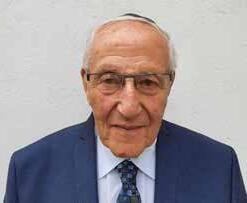







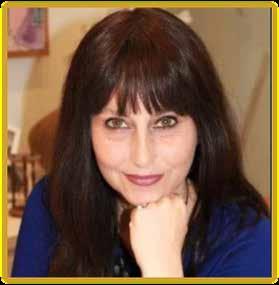

J E R U S A L E M
G e r m a n C o l o n y
3 B e d r o o m s
2
P
P
T
S u k k a h
P a r k i n g & s t o r

N
1
G


8
2
G
G

Asking



Dear Rabbi
I wrote to you last week and read with interest your reply to my question, regarding Keir Starmer wanting to declare a Palestinian state. Thank you for your reply. I find myself agreeing with you. I would like to write to my MP. If you would write to the Prime Minister directly, what would you say?
Olivia
Dear Olivia
“Dear Prime Minister
“The initiative by several countries to recognise a Palestinian state is one of the fruits of October 7th. We proved that victory over Israel is not impossible, and our weapons are a symbol of Palestinian dignity.”
This was said by senior Hamas terrorist Razi Hamed thanking France, the UK and Canada, for recognising a Palestinian state.
If this is who thanks you, what does it say about you?
Sincerely,”
Dear Rabbi
Why does Israel bother to keep acting alone to stop enemy states from acquiring nuclear weapons, especially as they are constantly vilified by the world who don’t even appreciate it?
Nethanel
Dear Nethanel
In 1981, Israel saved the world from Iraq getting a nuke. The world condemned it.
In 2007, Israel quietly saved the world from Syria getting a nuke. The world ignored it.
Today, Israel may have just saved the world - again - from Iran getting a nuke. And the world? Well, it’s too busy criticizing Israeli airstrikes and wringing its hands over “disproportionate responses” to notice.
Let’s be clear: Israel doesn’t seek medals or applause. It seeks survival. Not just for itself, but often for the very world that admonishes it. In an age of empty diplomacy and moral relativism, Israel does what others won’t: it acts. Decisively, morally and unflinchingly.
Because not all heroes wear capes. Some wear a uniform. Some wear a kippah. Some wear a Magen Dovid. And they don’t wait for history’s approval, they shape it.
So, the next time you sleep safely in a world without a nuclear Damascus, Baghdad, or Tehran, remember who lit the match before evil could press the button.
You’re welcome.
Dear Rabbi
My teenage son has started questioning everything; Torah, authority, the purpose of life. Should I be worried?
Esther



Dear Esther
Questioning is part of the Jewish package deal. When Isaiah Berlin was a young boy growing up in a Jewish home, his mother didn’t ask him after school, “Did you give the right answers?” Instead, she would ask: “Did you ask a good question today?”
This small but profound shift reflects a core value in Jewish tradition: that asking questions is not only encouraged but essential. From the Mah Nishtanah at the Seder to Talmudic debate, Jewish education is built not just on transmitting answers, but on cultivating curiosity.
Your son is becoming a thinking Jew. That’s a good thing. As long as he’s not “deconstructing halacha” in one hand while holding a bacon cheeseburger in the other, let him explore. Just make sure
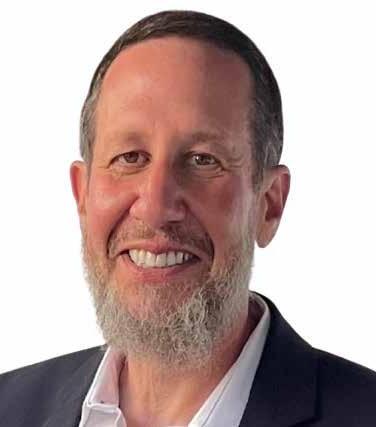
he stays anchored with a Talmud nearby, a sharp mind, and a healthy sense of humour. That’s how Jews survive.

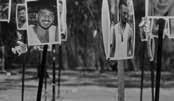


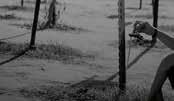
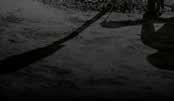













A free valuation from our in house gemmologist and gold experts on anything you may wish to sell. If you are thinking of selling, we purchase all Diamonds in any shape, size, clarity or colour. WE PAY MORE than all our competitors. Try us, and you will not be disappointed!



With stricter Inheritance Tax rules, planning ahead has never been more important. Of all the strategies we've put in place for clients over the years, one stands out as the most popular. It's simple, cost -effective, and works regardless of the type of assets you hold.
If your goal is to mitigate Inheritance Tax (IHT) and:

You're in good health

You're aged 88 and under (the younger, the better)

You have a lump sum available
…then this could be the silver bullet to solving your Inheritance Tax conundrum. It involves a one-off gift to a special trust and delivers a predictable, potentially generous return designed to mitigate your Inheritance Tax exposure helping to secure your family’s financial future when they need it most.
To receive a short article explaining how this unique, expertly crafted strategy works, simply email ; article@arnoldaaron.co.uk


FREE GIFT WITH EVERY PURCHASE
• Suits all half price
• Sports jackets all half price
• Polo shirts £15 each 2 for £20
• Summer casual Jackets from £29.50
• Trousers £20 each 2 pairs £35 up to 50 inch waist
• Shirts £15 each and 2 for £25

10 Golders Green Road London, NW11 8LL
Open weekdays until 6pm & Sundays til 5pm






BY SIVAN RAHAV-MEIR
Even in the heat of an argument, we must pay attention to what we say and how we say it. The language which we use is important and powerful and might exacerbate the situation. This week’s portion (Va’etchanan) describes the giving of the Tablets of the Law for the second time. The first time – the people made a golden calf after the giving of the Torah, and Moshe broke the Tablets. What happened there, in those moments? How did Moshe Rabbeinu hear up there, on the summit of Mt. Sinai, that the people below made a calf? In this portion, Moshe recreates that time in the ears of the people: “And the L-rd said to me: ‘Arise, get down quickly from here; for your people that you brought forth out of Egypt have behaved corruptly; they are quickly turned aside from the way which I commanded them; they have made themselves a molten image.’” Why does G-d say only here “they have made themselves a molten
image”? Indeed, they made a molten calf, and prostrated themselves before it and worshiped it. Why choose a minimalist, gentle, distant wording like this? In the wonderful book, Sha’arei Aharon, I found the following explanation:
“It is said ‘they have made themselves a molten image,’ and the reason that He did not say ‘a molten calf’ – was that He spared their honor because this thing was very shameful for them.”
That is, G-d did not say explicitly what the grave sin was but rather chose a gentler way of saying it. Here, even when we talk about the famous golden calf, we see that G-d renounced using the central word, “calf,” to spare the honor of those who sinned. If there is a connection, a covenant and a shared future, and if we want to forgive and keep going together, we must not mention all the sins and detail all the mistakes. On the contrary. It is better to blur and minimize them, not to humiliate and bring up long forgotten things.
****
This Shabbat is called Shabbat Nachamu (Shabbat of Consolation). Every year, we read about consolation on the Shabbat after Tisha B’Av in the haftarah, which begins: “Nachamu, nachamu ami” (Be consoled, be consoled, my people) (Yishayahu 40:1). This week’s Torah portion of Va’etchanan has a consoling aspect as well.
This is the farewell speech of Moshe Rabbeinu to the people, and to us as well. He does not continue with us to the Land of Israel, but he teaches us about the privilege of living in it, “a land flowing with milk and honey” (Devarim 6:3). Moshe repeats the Ten Commandments and reminds us that no matter how much the world is shaken up, there is still a human conscience and fundamental values: honor your father and mother, do not steal, do not commit adultery, keep Shabbat, do not worship idols. Countless times throughout the generations, other

nations and ideologies will try to erode these basic principles, but on Shabbat we will read them again.
Other seminal verses appear. Chief among them is the Shema: “Hear O Israel, the L-rd our G-d, the L-rd is One” (Devarim 6:4). This verse has been repeated billions of times throughout the millennia, but this is the first time it appears in our nation’s history. Amidst the wars, politics, and the oppressive heat, we will take advantage of our annual invitation to open the last will and testament of Moshe Rabbeinu to find consolation and comfort there.
Sivan Rahav-Meir is the World Mizrachi Scholar-in-Residence and an Israeli journalist and lecturer. She is a member of the Mizrachi Speakers Bureau (www. mizrachi.org/speakers).
Headshot: Arnon Busani























Parshat Va’etchanan is a continuation of Moshe relating the highlights – and low points – of the Jewish people’s journey through the desert over the 40 years. He opens by relating the 515 prayers that he said in order to be granted entry into the Holy Land, to no avail. Hashem had decreed that he would not be able to enter the land but instead appoint Yehoshua as his successor.
Moshe reminds the nation how they must be very careful to remove all vestige of idol worship from the holy land and certainly not manufacture nor own any forms that may be associated with idol worship. We are also introduced to the concept of not adding or subtracting from Mitzvot.
When Jewish people keep to the Torah and perform its Mitzvot the nations of the world admire them and exclaim how
wise and understanding this people are. Who truly is so great – explained Moshe – a nation which Hashem is close to whenever we cry out to Him?
We are warned that if we get too used to the Holy Land and begin serving idols, then Hashem will have us expelled from the Holy Land and scattered around the world. This unfortunately came true and throughout our close to 2000 years in exile, we have been scattered all over the world. Thankfully, wherever we have been there have been those who remained loyal to our Torah, which itself has brought much flavour to our religious practice, with Jews from Argentina able to relate to the same Torah as Jews from Algeria, Jews from Ireland able to compare notes with Jews from Iraq and Jews from Canada bringing a certain
different flavour to Mitzvah observance than Jews from China.
Moshe reviews the Ten Commandments and reminds the Jewish people how special they are –“Has any other nation heard Hashem Himself talk to them?” It was not an individual “prophecy” that we are told to believe; it was an entire nation who heard Hashem communicate with us and with Moshe. We are warned to never forget the day on which we all stood at Har Sinai to receive the Torah.
As we learned in a previous Sidra, there were to be cities of refuge set aside for one who killed unintentionally (G-d forbid). Although Moshe himself was not going to be entering the Holy Land he was still keen to fulfil a Mitzvah and therefore separated three cities on the east of the Jordan to be designated
for this purpose.
The Parsha contains the first passage of our declaration of faith – Shema Yisrael and Ve’ahavta. It is noteworthy how many Mitzvot are contained in this relatively small section of the Torah which we are privileged to read twice a day!
Moshe reminds the Jewish people –Hashem did not choose you over other nations due to your strength in number – there are plenty nations with far more people. Rather, you were chosen from the love Hashem has for you and in keeping with His promise to our forefathers to redeem you from Egypt.
The Parsha ends with another fundamental principle of Judaism –Hashem rewards those who are loyal to Him and, sadly, punishes those who are not.
Number of Verses - 122
Number of Words - 1,878
Number of Letters - 7,343
Last week’s answer: Which four Berachot are said exactly once every year?
The answer is:
1. Seeing the first blossoms in the spring.
2. Bedikat chametz (said the night before Passover).
3. The special bracha of “Nachem” during the Mincha Amida of Tisha B’Av.
4. Lighting candles on erev Yom Kippur.
Well done to Shimmy Klein!!
This week’s Question:
Where in the Tefillot do you find four different, consecutive words that all have the same root?
(Hint: It’s not said every day.)
Using all the shapes, can you make the shape on the right?
The goal of a word wheel puzzle is to create as many words possible with the letters in the word wheel. Each word must contain at least three letters. You can only use each letter once and every word must have the letter in the centre of the wheel.
Last edition’s words
Here are some words you may have found from last week – you may have found more!
T E G T D R A U
Use the area below to write the words you have found.
Q: What side of a chicken has the most feathers?
A: The outside of course!
Q: Where do kings keep their armies?
A: In their sleevies!
Q: Where do baby cows eat?
A: In the calf-ateria!
Q: Why do bicycles fall over?
A: Because they are two-tired!
1. I can be cracked, I can be played. I can be told, I can be made. What am I?
2. If you lose me you cause people around me to lose me too. What am I?
3. I am so fragile, saying my name will break me. What am I?
